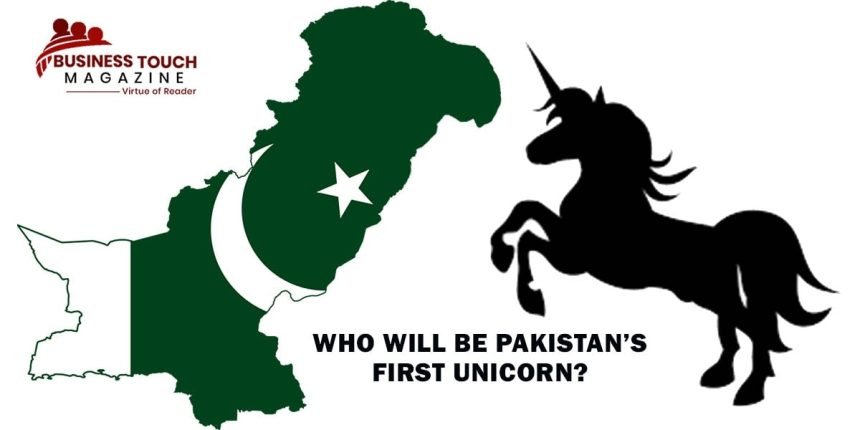The startup scene in Pakistan is thriving, and the nation may soon see its first company worth $1 billion.
Records in fundraising, the appearance of well-known international investors, and the rise of entrepreneurial “mafias” are just a few of the recent highlights for Pakistan’s digital startup scene. The world’s fifth-most populated nation may soon have its own homegrown digital unicorn if everything goes right.
Seeing as how India just created its 100th startup unicorn this month, many in Pakistan’s digital startup ecosystem are eagerly anticipating the day when a Pakistani firm reaches the coveted $1 billion valuation. It is believed by local investors that the presence of a unicorn would further establish Pakistan as a desirable location for startups.
Currently, “there is no confirmation that the market is a destination; there are the inklings of it, and that’s incredibly thrilling… Kalsoom Lakhani, co-founder and general partner at Pakistan-focused early-stage fund i2i Ventures, told Rest of World earlier this year that unicorn values are significant for signalling, regardless of their relevance.
While the real significance of a company’s valuation may be negligible, the value of a unicorn’s valuation cannot be discounted.
Faisal Aftab, co-founder and managing partner at Pakistani venture capital firm Zayn Capital, told Rest of World that a unicorn might go a long way toward persuading foreign investors who may be on the fence given the country’s unstable political landscape. That Pakistan is here to stay, as a country, will be permanently established.
According to Lakhani, the first Pakistani firm to reach a valuation of $1 billion would operate in the business-to-business (B2B) retail sector. These companies need substantial capital investments, which necessitates several funding rounds. This year alone, entrepreneurs in Pakistan have raised over $163 million, with over $130 million going to e-commerce businesses.
“However, startups don’t expand in a straight up-and-to-the-right line, therefore it hasn’t occurred until it’s happened. Values and unicorn names aren’t what we’re primarily concerned about, but we do our best to avoid ignoring them. Aatif Awan, founder of Pakistan-focused early-stage VC fund Indus Valley Capital, is an investor in Bazaar Technologies and Airlift, two companies that are widely considered to be the frontrunners in the race to reach unicorn valuation. “Having two startups cross the unicorn threshold in such a short period of time will draw in a lot of later-stage investors to the market and also attract a lot more founders to start something in Pakistan,” Awan said.
In March, Bazaar Technologies, which operates a marketplace linking retailers directly with wholesalers and manufacturers, secured $70 million in a series B financing headed by Tiger Global and Dragoneer at a value of more than $100 million. In April, Tiger Global invested in Zaraye, a B2B suppliers platform for the building sector, during the company’s first pre-seed investment round. Graphene led a $36 million series A funding round for Retailo Technologies, a B2B software that is automating retail supply chains. It has been speculated that B2B marketplace Dastgyr Technologies may raise $45 million in a series A financing at a value of above $100 million.
For further development of the B2B retail model, “there is an interest from outside investors,” Lakhani added. These companies will continue to expand as long as there is demand, and this industry will likely have two dominant players.
Similarly, local VCs anticipate that 2019 may see the emergence of Pakistan’s first fintech unicorn. Banking services in Pakistan will be able to be digitized thanks to new regulations implemented in 2021 by the Securities and Exchange Commission and the Central Bank of Pakistan. In addition, the government-backed central bank began offering free P2P payments services early this year. The regulation has been essential in the success of fintech firms.
Salary advance startup Abhi, which began in 2021, received $17 million in a series A investment sponsored by Speedinvest in April, valuing the company at $90 million. When financial technology company SadaPay got its commercial authorization to provide financial services, it also secured $10.7 million in an expanded seed round the same month.
This year, just one business-to-consumer (B2C) firm, Airlift Technologies, has a chance to join the ranks of the unicorn club. First introduced in 2019 as a public transportation company, Airlift shifted its focus to business-to-consumer online retail in the midst of 2020’s Covid-19 lockdowns.
Airlift’s series B fundraising round of $85 million in August 2021 was unprecedented in the Pakistani startup industry. Former Y Combinator president Sam Altman, Twitter co-creator Biz Stone, and Bain Capital co-chairman Steve Pagliuca are among the company’s investors. In its most recent funding round, the firm was valued at $275 million, but its growth rate has been impressive. At least one venture capitalist (VC) who does not invest in Airlift informed Rest of World that the company has to improve its unit economics in order to reach a $1 billion value. The VC spoke on condition of anonymity to express concern that investors may be scared off by the company’s present cash flow problems.
In spite of the optimism of the previous two years, analysts warn that Pakistan may have to wait for a while before it sees its first unicorn due to a “cooling down” in financing later in the year. Interest rates in the United States were increased this month, the highest increase in more than two decades, and this will have a direct influence on the flow of money into developing economies like Pakistan. According to Aftab of Zayn Capital, “many of Pakistani entrepreneurs are young and haven’t faced liquidity cycles yet.” If you want to become a unicorn, you have to remain in business through many economic downturns. It will be a rude awakening for young entrepreneurs who have never experienced a liquidity constraint like 2008 to find that funding is scarce. “The risk of a handful business busts here and there is greater over the next 18 months than a lot of unicorns sprouting up,” says Aftab.




